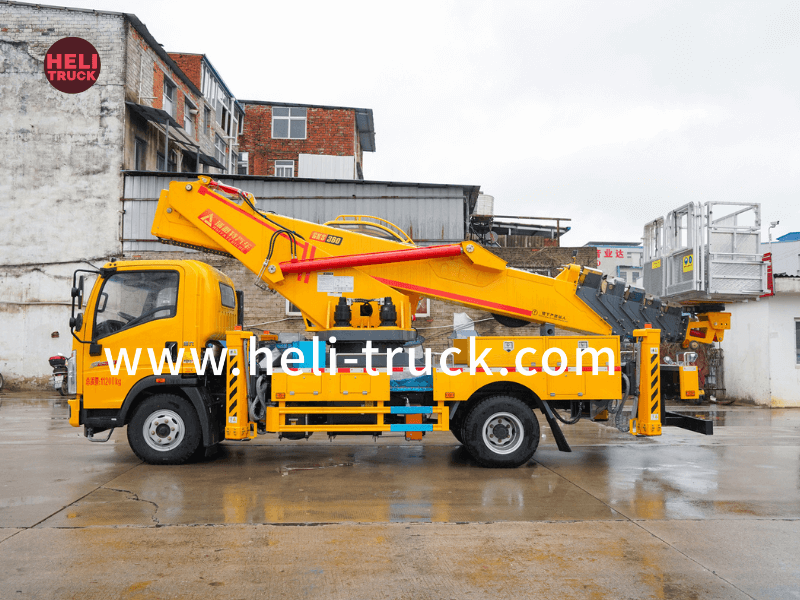Introduction
Garbage compactor trucks play a crucial role in waste management systems by efficiently collecting and compacting solid waste to reduce its volume. Proper maintenance of these trucks is essential to ensure their optimal performance and longevity. In this comprehensive guide, we will delve into the various aspects of garbage compactor truck maintenance, covering everything from routine checks to troubleshooting common issues.
1. Importance of Garbage Compactor Truck Maintenance
1.1. Ensuring Efficient Waste Collection: Regular maintenance helps prevent breakdowns and ensures that the truck operates smoothly during waste collection rounds.
1.2. Extending Lifespan: Proper maintenance practices can significantly extend the lifespan of a garbage compactor truck, saving on replacement costs.
1.3. Safety Considerations: Well-maintained trucks are less likely to experience malfunctions that could compromise the safety of operators and other road users.
2. Routine Maintenance Checks
2.1. Engine Maintenance: Regular oil changes, filter replacements, and inspection of engine components are essential to keep the truck running smoothly.
2.2. Hydraulic System: Check hydraulic fluid levels, hoses, and cylinders for leaks or damage to prevent system failures.
2.3. Compactor Mechanism: Inspect the compactor blade, ram, and other components for wear and tear, and ensure proper alignment for efficient waste compaction.
2.4. Electrical System: Test lights, sensors, and controls to ensure they are functioning correctly, as electrical issues can hamper the truck's operation.
2.5. Body and Chassis: Inspect the body for rust, cracks, or other damage, and check the chassis for signs of wear that may affect the truck's structural integrity.
3. Preventive Maintenance Practices
3.1. Follow Manufacturer's Guidelines: Adhere to the maintenance schedule and recommendations provided by the truck's manufacturer to ensure optimal performance.
3.2. Keep Detailed Records: Maintain a maintenance log to track service intervals, repairs, and parts replacements, aiding in identifying patterns or recurring issues.
3.3. Regular Cleaning: Clean the truck's exterior and interior regularly to prevent corrosion and blockages that can affect its operation.
3.4. Lubrication: Ensure proper lubrication of moving parts to reduce friction and wear, extending the lifespan of critical components.
3.5. Training and Education: Provide training to operators and maintenance staff on proper truck operation and maintenance procedures to prevent avoidable damage.
4. Common Maintenance Challenges and Solutions
4.1. Hydraulic Leaks: Identify and repair hydraulic leaks promptly to prevent system failure and ensure consistent compaction performance.
4.2. Electrical Malfunctions: Troubleshoot electrical issues by checking connections, fuses, and sensors to address problems with lights, controls, or safety systems.
4.3. Compactor Blade Wear: Monitor the condition of the compactor blade and replace it when worn to maintain efficient waste compaction.
4.4. Engine Overheating: Address overheating issues by checking coolant levels, radiator condition, and fan operation to prevent engine damage.
4.5. Structural Damage: Inspect the body and chassis regularly for signs of damage and corrosion, addressing issues promptly to prevent structural failure.
5. Advanced Maintenance Techniques
5.1. Visit Your URL : Invest in diagnostic equipment to identify issues quickly and accurately, allowing for timely repairs and minimizing downtime.
5.2. Predictive Maintenance: Implement predictive maintenance strategies using data analytics to anticipate component failures and schedule proactive repairs.
5.3. Component Upgrades: Consider upgrading critical components such as hydraulic pumps or sensors to improve efficiency and reliability.
5.4. Professional Inspections: Schedule regular inspections by qualified technicians to identify potential problems early and ensure compliance with safety regulations.
6. Environmental Considerations
6.1. Waste Management Practices: Dispose of waste materials generated during maintenance activities responsibly to minimize environmental impact.
6.2. Emission Control: Ensure the truck's exhaust system complies with emission standards to reduce air pollution and protect the environment.
6.3. Recycling Efforts: Explore opportunities to recycle waste materials generated by maintenance activities, promoting sustainability in waste management operations.

7. Conclusion
Proper maintenance of garbage compactor trucks is essential to ensure their efficient operation, longevity, and safety. By following a comprehensive maintenance routine, addressing common challenges proactively, and embracing advanced techniques, waste management organizations can maximize the performance and lifespan of their compactor trucks. With a focus on preventive maintenance, environmental considerations, and continuous improvement, garbage compactor truck maintenance can contribute to more sustainable and effective waste management practices.
